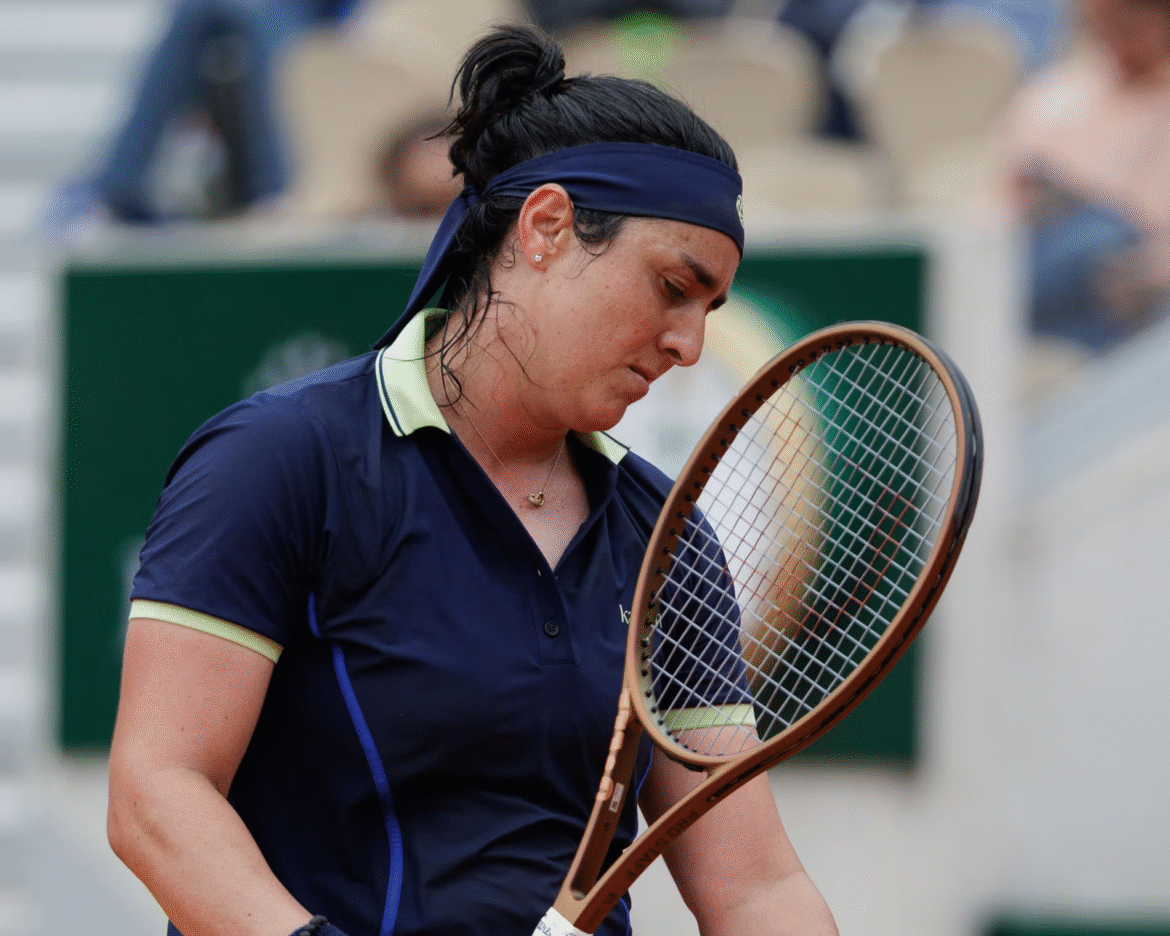Tunisian tennis star Ons Jabeur has publicly criticized the French Open organizers for the continued exclusion of women’s matches from the tournament’s prestigious night sessions. This issue has reignited discussions about gender equality in tennis scheduling, especially as the 2025 French Open progresses.
A Persistent Disparity
Since the introduction of evening sessions at Roland Garros in 2021, there has been a noticeable imbalance in the scheduling of men’s and women’s matches. In both 2022 and 2023, only one women’s singles match was featured during the prime-time slots. The trend continued into 2024, with all 11 night sessions allocated exclusively to men’s matches.
Jabeur expressed her frustration, stating, “I would have loved a quarter-final at night, not at 11 a.m. For me, it doesn’t make sense.” She emphasized that many high-quality women’s matches, such as the clash between Iga Swiatek and Naomi Osaka, were overlooked for prime-time scheduling.
Organizers’ Response and Ongoing Concerns
French Tennis Federation President Gilles Moretton defended the scheduling choices, asserting that the best match, regardless of gender, is chosen for the night session. However, critics argue that this approach perpetuates a cycle where women’s sports receive less visibility, leading to lower viewership and further marginalization.
Tournament director Amélie Mauresmo acknowledged the need for improvement, stating in 2023 that they could “do better” on evening scheduling. Despite this, the 2024 tournament did not feature any women’s matches in the night sessions, highlighting a lack of progress.
Broader Implications for Women’s Tennis
The Women’s Tennis Association (WTA) has called for a balanced match schedule that gives women’s players their fair share of prime-time billing. They emphasize that fans want to see the excitement and thrill of women’s tennis on the biggest stages and in premium time slots.
Jabeur’s comments reflect a broader concern about the fair treatment and promotion of women athletes in professional sports. She stated, “We deserve a better scheduling,” highlighting the need for systemic changes to ensure equal opportunities and visibility for female players .
What’s Next
As the debate continues, there is a growing call for the French Open and other major tournaments to reassess their scheduling practices. Ensuring that women’s matches are featured in prime-time slots is not only a matter of fairness but also essential for promoting the sport and inspiring future generations of female athletes.
The ongoing discussions and criticisms underscore the importance of addressing gender disparities in sports and the need for concerted efforts to achieve equality on and off the court.
